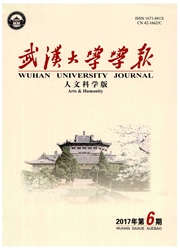

 中文摘要:
中文摘要:
新派公共领域理论学者提出的反公众和反公共性以一种多元的视角批判哈贝马斯公共领域基于霸权建构的排他性,揭示公共话语的权力关系。我们需要从三方面阐释理解反公众之反的本质内涵:一是反公众所隐含的对立性,也即成员对自身边缘化和被排斥的地位的充分意识;二是作为社会空间的反公众,具有从主流公共领域的传播流中退出和再进入的二元功能;三是反公众向外追求公开性。而反公共性代表了反公众的言说方式,是与主流话语积极竞争的传播行动。反公众和反公共性概念对中国本土研究的意义在于,有助于揭示国内舆论场多元话语竞争的状态,并关注中国公共话语空间中不少处于从属地位的边缘话语实体,从而以一个多元主义的视角来看待为主流媒体所忽视的话语问题。
 英文摘要:
英文摘要:
"Counterpublic"and "counterpublicity"proposed by neo-Harbermasian theorists criticize the exclusion in a hegemonic Habermasian public sphere and reveal the power relation in public discourse from a perspective of pluralism.The"counter"in "counterpublic"needs to be interpreted from the three aspects:1)the oppositionality,which means the awareness of an excluded status on which marginalized identities are built and autonomous discourses are framed;2)the binary functions of withdrawing from and reentering into the communication flow of mainstream public sphere;3)reaching out to a wider publicity."Counterpublicity"reveals how the"counterpublic"speaks out,and represents communication acts to challenge mainstream discourses.It is pointed out that the implications of"counterpublic"and "counterpublicity"for the China-based research exist in their helping to reveal the current state of discourse competition in the field of Chinese public opinion,and thus attention is paid to the mariginalized discourse entities in the Chinese public discourse space ignored by mainstream media from a pluralistic perspective.
 同期刊论文项目
同期刊论文项目
 同项目期刊论文
同项目期刊论文
 期刊信息
期刊信息
